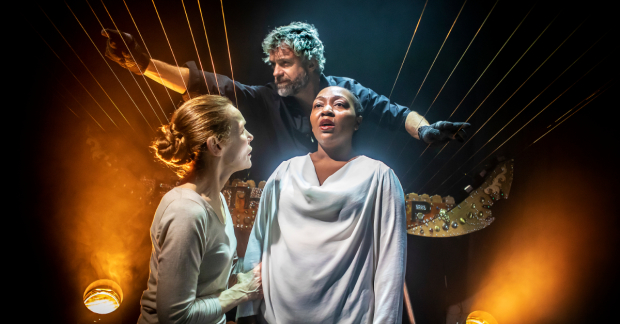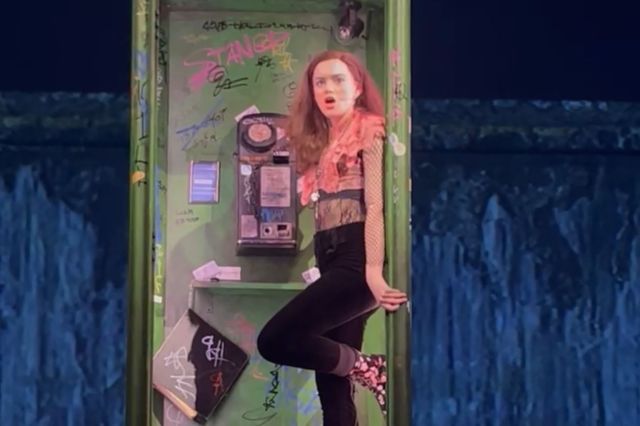Review: Persona (Riverside Studios)
Paul Schoolman’s stage adaptation of the Ingmar Bergman film opens the newly refurbished west London venue

© Pamela Raith
What a treat it is to visit the gleaming new Riverside Studios, which truly looks like an arts complex for the 21st century: at once cool but welcoming, functional but visually appealing. It isn't quite finished yet but it already feels like an essential destination spot for Londoners, especially given the enviable location right on the Thames.
I wish then I could be quite as enthusiastic about the first offering in the main theatre space. Paul Schoolman's adaptation of the seminal Ingmar Bergman movie – ostensibly about a famous actress shut down into silence after a psychological episode, and the nurse assigned to care for her – is meticulously prepared, researched and full of good intentions. Unfortunately that doesn't necessarily make for stimulating, or even coherent, theatre.
Persona as a movie is driven by mood, ambiguity and cinematic invention, things that can be difficult to convey on stage without access to the close-ups and cut-aways of film. Despite the addition of a narrator, whose primary function is to speak aloud directions from the screenplay, it is not always clear where our focus as audience members should be – a problem further exacerbated by the fact that the actress character barely speaks. Seen at extremely close quarters, Nobhule Mngcwengi's performance as Elizabet probably has a simmering intensity, but from a small distance she seems to be running a short gamut between smirking and blank.
Alice Krige fares better as nurse Alma, perhaps unsurprisingly since she has the lion's share of the text: she compellingly marries fragility with ruthlessness. One of the conceits of the original film was the extraordinary physical resemblance between Bibi Andersson and Liv Ullmann as Alma and Elizabet respectively – when the latter's husband visits the island where she is recovering, he has a conversation with Alma and addresses her as his wife. There are even textual hints that they may actually be the same woman. Here however, Krige and Mngcwengi are nothing alike, physically or vocally, which tears away another layer of fascination from this already elusive piece.
Schoolman himself serves as narrator, supporting actor (he plays the actress's husband) and director, and one can't help but wonder if he might have done better sharing these tasks with somebody else. The physical staging is at best serviceable and Schoolman's delivery of the text is flat to the point of inertia.
The only time this stage treatment fully justifies itself as a theatrical event is in the use of William Close's genuinely astonishing Earth Harp, a beautiful hybrid of musical instrument and art installation – strings stretch from the stage over the heads of the audience to the back of the auditorium. As played by Close himself (Catrin Meek takes over for the February performances), the Earth Harp supplies a melancholic, yearning soundscore for this ponderous piece that proves considerably more expressive than the uninspired words. Watching this strange, wonderful thing being played is a welcome distraction from the turgid carryings-on of the characters.
Bergman's movie is always cropping up on lists of top films of the 20th century – this authoritative but prosaic stage distillation is unlikely to entice many laypeople to seek it out however. It's a very long evening in the theatre that actually only lasts just over 90 minutes




















